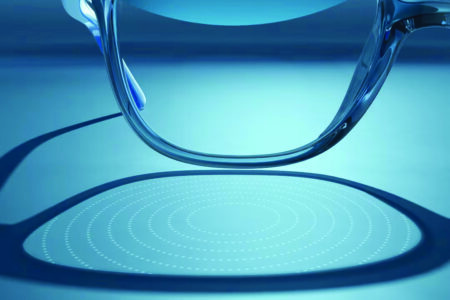Health Matters: The evidence on epsom salt soaks

Conway McLean, DPM, Journal columnist
Many Americans would say a hot bath is a relaxing experience, at least for those who take the time to indulge. But when combined with Epsom salts, the medicinal benefits are believed to be considerable. Although the claims are impressive, what is the science behind Epsom salt soaks and what does the research show? These are important questions regarding the health claims attributed to this common practice.
People place great faith in the healing powers of these salt soaks, believing it decreases arthritis pain and stiffness, and eases sore muscles. They say it reduces swelling, relieves stress, while some believing it can cure depression. Some users think it can improve circulation, as well as helping in the process of muscle recovery.
Epsom salts contain a natural mix of magnesium and sulfate which is supposed to provide the positive attributes. The idea is that when placed in water, Epsom salt breaks down into magnesium and sulfate. They propose, when you soak in a solution of Epsom salts, these minerals get absorbed into your body through the skin. Numerous studies have revealed repeatedly that our skin provides an extremely protective barrier. It doesn’t just keep the bad things out and let the good things in.
Proponents believe magnesium may help the body get rid of toxins responsible for exacerbating inflammation. Some claim this crystalline material is good for people who are magnesium deficient. Yet, there’s no evidence the magnesium is absorbed through the skin. A literature search will find no study on magnesium sulfate or Epsom soak, and absorption into the body.
Some claim Epsom salt soaks can leach heavy metals from the body through the skin when submerged in an Epsom salt bath. The theory goes that the sulphates in Epsom salt help flush out toxins and heavy metals through a process called reverse osmosis. Only a single, small clinical study has linked Epsom salt bathing to raising magnesium levels. Other studies found Epsom salt baths helped people simply as a placebo effect.
Scientifically-speaking, we cannot say that soaking in Epsom salts really does anything. There is little to no research on the effects of bathing in an Epsom salt bath. Numerous blogs can be found, with endless claims about the health benefits provided, but there is no identifiable mechanism that leads to any specific health benefits. Perhaps the only thing saving this material from disuse is the lack of any negative consequences whatsoever.
Maybe more important to the benefits of Epsom salt soaks is the associated use of moist heat, which has a long and well-researched history of positive health consequences. Hydrotherapy is a widely used treatment for acute or chronic trauma, as well as in rehabilitation. It has also been used to prevent diseases in healthy people.
For this technique to be universally accepted and endorsed, for the medical consensus to include its prescription, better studies are needed. But good research is expensive, tremendously so, and who would fund such an investigation? Epsom salts were privately owned long ago but have been generic for generations. No government agency has performed the research so we cannot definitively say.
Once again, we arrive at a familiar crossroads between what science can tell us versus “folk medicine, practiced utilized over the years, just because “that is what is done.” Epsom salt soaks being the perfect example, with many individuals partaking, despite the lack of evidence on its effectiveness. Regardless of the lack of good science, it’s a folk remedy that been around for hundreds of years.
The problem with some home remedies is that more proven techniques are not utilized in a timely fashion because a folk remedy is used instead. Epsom salt soaks are relatively harmless, this can’t be denied, as long as it is kept as an ancillary, additional method of relief.
Sometimes these remedies work because there’s a placebo effect. As dedicated readers know the placebo effect is a real thing and potentially quite powerful. When it comes to Epsom salt soaks, there just isn’t enough clinical studies to support it. Consequently, a definitive conclusion, backed up by well-constructed research, that Epsom salts are effective in treating any of the conditions it is credited with, is not yet available. But if it feels good why not, since it’s not going to hurt you, as long as more definitive treatment isn’t ignored as a result.
Editor’s note: Dr. Conway McLean is a physician practicing foot and ankle medicine in the Upper Peninsula. Dr. McLean’s practice, Superior Foot and Ankle Centers, has offices in Marquette and Escanaba, and now the Keweenaw following the recent addition of an office in L’Anse. McLean has lectured internationally, and written dozens of articles on wound care, surgery, and diabetic foot medicine. He is board certified in surgery, wound care, and lower extremity biomechanics.






